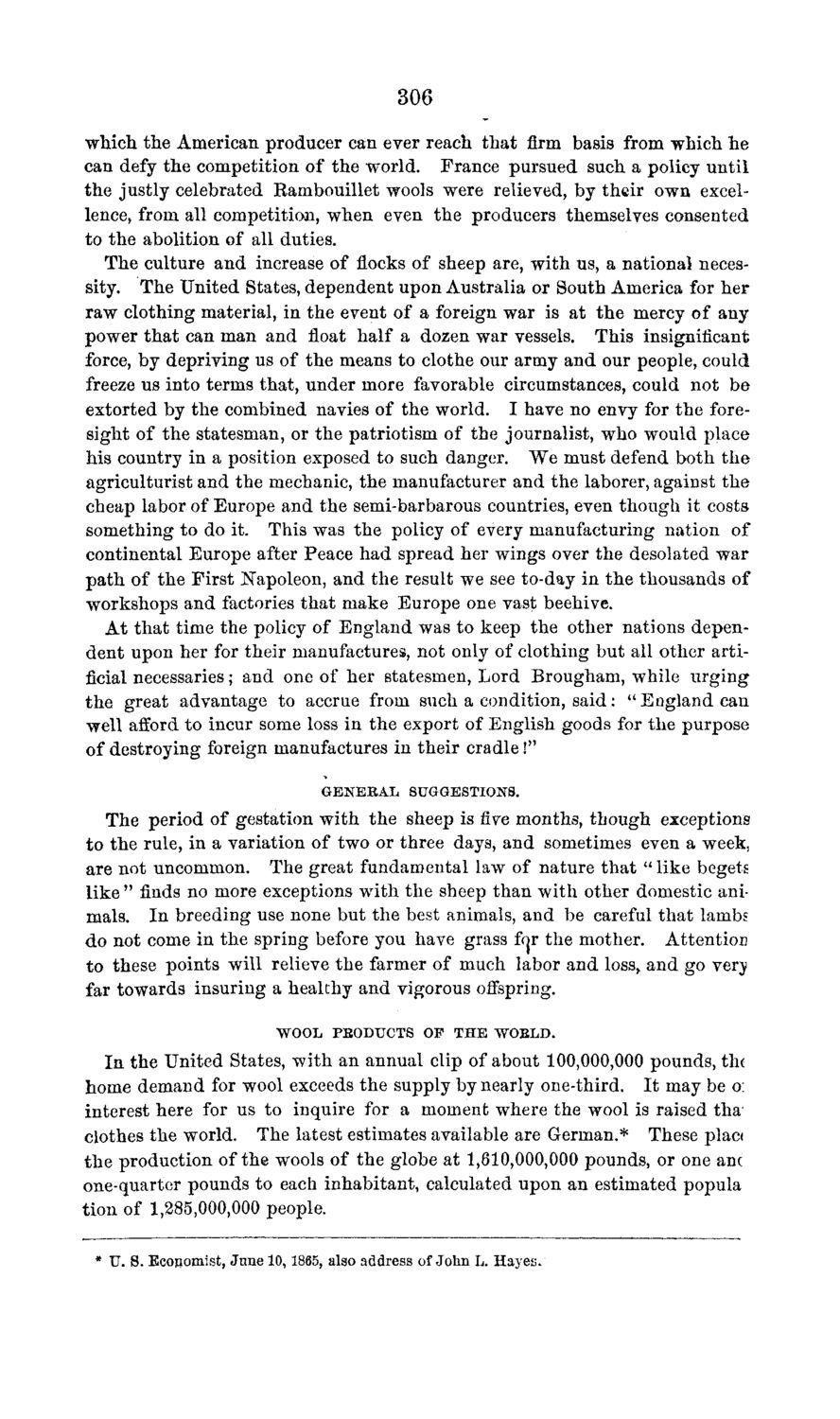| |
| |
Caption: Board of Trustees Minutes - 1869
This is a reduced-resolution page image for fast online browsing.

EXTRACTED TEXT FROM PAGE:
306 which the American producer can ever reach that firm basis from which he can defy the competition of the world. France pursued such a policy until the justly celebrated Rambouillet wools were relieved, by their own excellence, from all competition, when even the producers themselves consented to the abolition of all duties. The culture and increase of flocks of sheep are, with us, a national necessity. The United States, dependent upon Australia or South America for her raw clothing material, in the event of a foreign war is at the mercy of any power that can man and float half a dozen war vessels. This insignificant force, by depriving us of the means to clothe our army and our people, could freeze us into terms that, under more favorable circumstances, could not be extorted by the combined navies of the world. I have no envy for the foresight of the statesman, or the patriotism of the journalist, who would place his country in a position exposed to such danger. We must defend both the agriculturist and the mechanic, the manufacturer and the laborer, against the cheap labor of Europe and the semi-barbarous countries, even though it costs something to do it. This was the policy of every manufacturing nation of continental Europe after Peace had spread her wings over the desolated war path of the First Napoleon, and the result we see to-day in the thousands of workshops and factories that make Europe one vast beehive. At that time the policy of England was to keep the other nations dependent upon her for their manufactures, not only of clothing but all other artificial necessaries; and one of her statesmen, Lord Brougham, while urging the great advantage to accrue from such a condition, said: " England can well afford to incur some loss in the export of English goods for the purpose of destroying foreign manufactures in their cradle!" GENERAL SUGGESTIONS. The period of gestation with the sheep is five months, though exceptions to the rule, in a variation of two or three days, and sometimes even a week, are not uncommon. The great fundamental law of nature that "like begets like " finds no more exceptions with the sheep than with other domestic animals. In breeding use none but the best animals, and be careful that lambs do not come in the spring before you have grass for the mother. Attention to these points will relieve the farmer of much labor and loss, and go ver^ far towards insuring a healthy and vigorous offspring. WOOL PB0DTJCTS OF THE WOELD. In the United States, with an annual clip of about 100,000,000 pounds, tin home demand for wool exceeds the supply by nearly one-third. It may be o: interest here for us to inquire for a moment where the wool is raised tha clothes the world. The latest estimates available are German.* These plac< the production of the wools of the globe at 1,610,000,000 pounds, or one anc one-quarter pounds to each inhabitant, calculated upon an estimated popula tion of 1,285,000,000 people. * U. S. Economist, June 10,1865, also address of John L. Hayes.
| |